

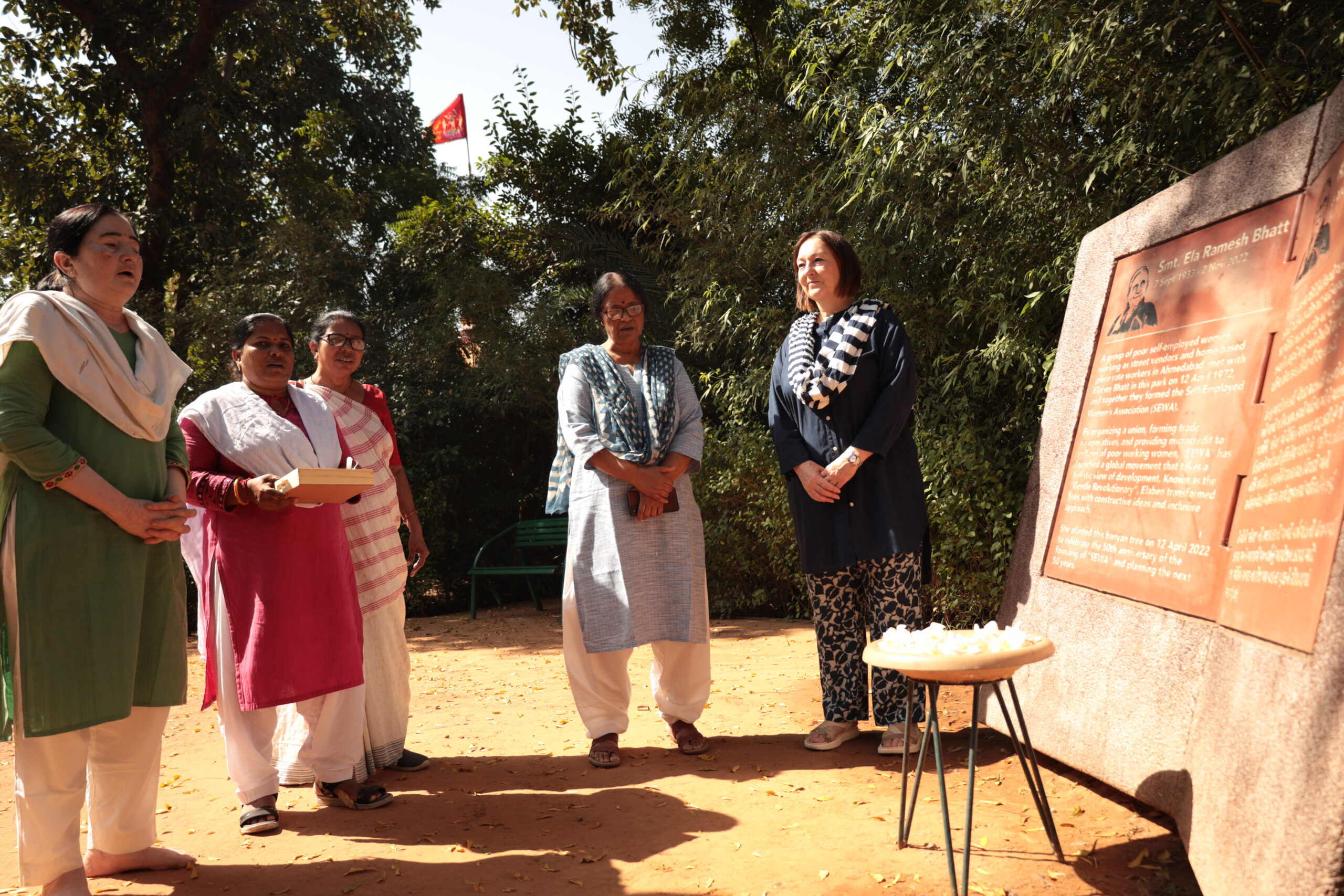
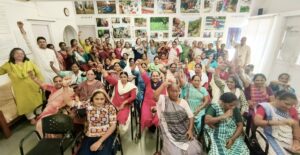 Gujarat, November 2, 2024 – On the occasion of the 2nd Death Anniversary of SEWA’s founder Ela Bhatt, hundreds of SEWA members were joined by Ms. Sue Longley, General Secretary of the International Union of Food, Agricultural, Hotel, Restaurant, Catering, Tobacco, and Allied Workers’ Associations (IUF) to honors SEWA’s visionary founder Smt. Ela Bhatt at SEWA’s office in Ahmedabad. In a historic move, IUF has passed a declaration that November 2nd will be celebrated globally as the “International Day for Informal Workers.”
Gujarat, November 2, 2024 – On the occasion of the 2nd Death Anniversary of SEWA’s founder Ela Bhatt, hundreds of SEWA members were joined by Ms. Sue Longley, General Secretary of the International Union of Food, Agricultural, Hotel, Restaurant, Catering, Tobacco, and Allied Workers’ Associations (IUF) to honors SEWA’s visionary founder Smt. Ela Bhatt at SEWA’s office in Ahmedabad. In a historic move, IUF has passed a declaration that November 2nd will be celebrated globally as the “International Day for Informal Workers.”
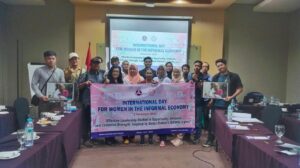
Over 407 affiliates of IUF across 126 countries globally celebrated this day, remembering Elaben. As SEWA’s aagevans (grassroots leaders) shared their memories and inspirational interactions with “their Elaben”, Mr. Hidayat Greenfield, Regional Secretary of IUF shared pictures of celebration of this day by various affiliates across the globe, stating that “SEWA sisters are saying ‘our ELABEN’, but now onwards with this International celebration of 2nd November all Affiliates of IUF will also say ‘OUR ELABEN’”
At the event, SEWA General Secretary Jyoti Macwan emphasized the importance of this day, stating, “It is vital that the global community recognizes November 2nd as a day dedicated to informal workers. We are committed to ensuring this day is celebrated widely, with the support of trade unions, UN agencies, and international organizations. It will be a long process, but at SEWA, we embrace it as a “Constructive Struggle”
Jyotiben also explained how the “International Day for Informal Workers” will highlight a new theme each year, with “Effective Leadership” as the focus for 2024–2025. SEWA’s grassroots members and IUF affiliates worldwide will come together to organize activities and raise awareness around the unique challenges and contributions of informal workers.
As the first global union federation to recognize SEWA’s work in organizing informal women workers, IUF has been a steadfast ally to SEWA for over 40 years. Congratulating Ms. Longley on her historic election as the first woman to lead IUF, SEWA General Secretary Jyoti Macwan said, “In the past 40 years, SEWA, under the guidance of Elaben, has worked closely with IUF and visionary leaders. But today, we are especially proud of sister Sue Longley. Her leadership is encouraging for women in the trade union movement.”
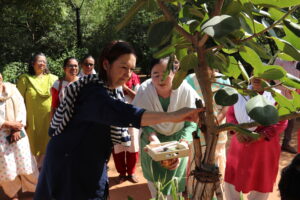 Reflecting on Ela Bhatt’s legacy, SEWA Vice President Heenaben Dave shared how Elaben’s vision shaped SEWA into a forward-thinking union. “Elaben believed in a member-centric approach. She encouraged us to take proactive steps for our members’ well-being. The world often discussed challenges SEWA had already addressed,” she said. For instance, SEWA’s Agriculture Campaign, launched in 1987, sought to empower women as farmers and entrepreneurs, challenging the long-standing question Elaben posed: “Why does a farmer remain hungry?” This campaign now supports over 55% of SEWA’s members in agriculture through treating farm as an enterprise, enabling capacity building, access to agro-inputs and technology, finance, and markets and integrating women workers higher up in the agricultural value chain.
Reflecting on Ela Bhatt’s legacy, SEWA Vice President Heenaben Dave shared how Elaben’s vision shaped SEWA into a forward-thinking union. “Elaben believed in a member-centric approach. She encouraged us to take proactive steps for our members’ well-being. The world often discussed challenges SEWA had already addressed,” she said. For instance, SEWA’s Agriculture Campaign, launched in 1987, sought to empower women as farmers and entrepreneurs, challenging the long-standing question Elaben posed: “Why does a farmer remain hungry?” This campaign now supports over 55% of SEWA’s members in agriculture through treating farm as an enterprise, enabling capacity building, access to agro-inputs and technology, finance, and markets and integrating women workers higher up in the agricultural value chain.
At the event, SEWA President Ramilaben Parmar spoke of the personal impact Elaben had on her life: “Thanks to Elaben’s encouragement, I overcame depression, organized thousands of women in my district, and today, I proudly serve as SEWA’s President.”
Champaben, a street vendor, shared how Elaben’s relentless optimism sustained them through years of struggle. “Elaben always encouraged us saying there is no space for the word ‘No’ in our dictionary,” Champaben recalled. “Due to our persistence, we not only achieved a law for street vendors but also earned recognition. The municipal corporation in Ahmedabad is now building five organic markets for us, involving SEWA in the design and planning process.”
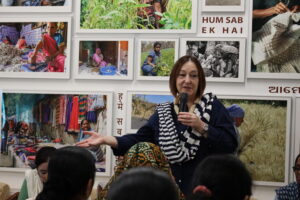 Reflecting on her deep connection with SEWA’s leaders, Ms. Longley shared, “I may be the first woman General Secretary of IUF, but seeing the confidence and leadership of SEWA’s grassroots leaders gives me hope—I won’t be the last. Elaben’s work continues to inspire us all to empower informal workers and honor their voices.”
Reflecting on her deep connection with SEWA’s leaders, Ms. Longley shared, “I may be the first woman General Secretary of IUF, but seeing the confidence and leadership of SEWA’s grassroots leaders gives me hope—I won’t be the last. Elaben’s work continues to inspire us all to empower informal workers and honor their voices.”
In closing, Ms. Longley acknowledged the path forward may be challenging, but IUF stands with SEWA to assure the International Day for Informal Workers gains global acceptance. “We recognize there may be resistance, but we are prepared to join SEWA in this constructive struggle,” she affirmed.